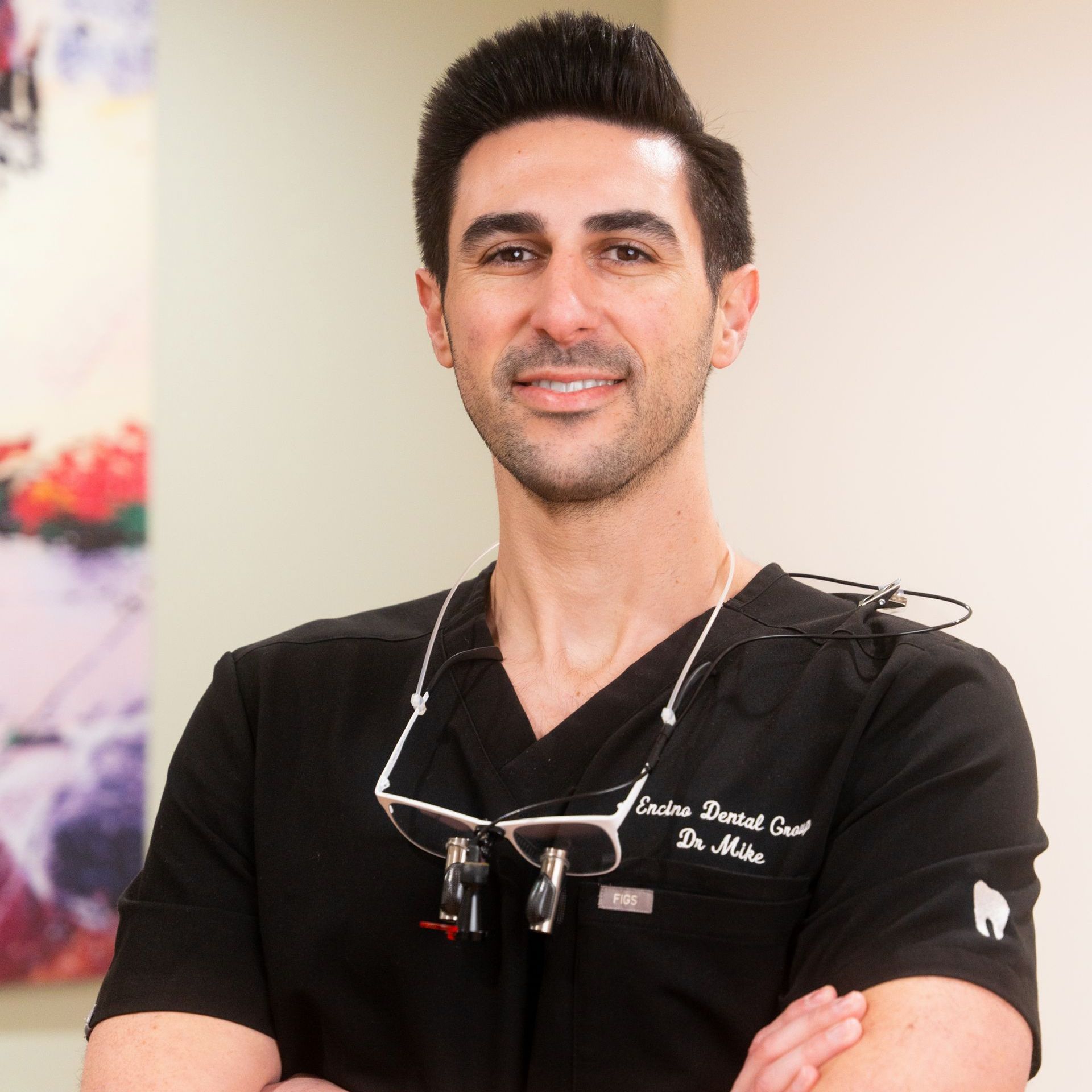Oral Surgery
Advanced Oral Surgery for a Healthier Smile
Over the years, perhaps you’ve been to a dentist who sent you to an oral surgery specialist for a specific procedure, such as a dental implant or the removal of an impacted wisdom tooth. Your dentist did that because there are highly specialized skills involved in performing those procedures—skills that are very different from the unique skills of a dentist. Where dentists concern themselves mostly with the health and condition of teeth, oral surgeons focus on the ecosystem, so to speak, in which teeth live.
Wisdom Tooth Extraction
A lot of people have their first experience of oral surgery when it comes to having wisdom teeth removed. Wisdom teeth (also called “third molars) are the last adult teeth to break through the gums, usually between the teen years and early twenties. An oral surgeon is brought in to deal with wisdom teeth because their deep-in-the-mouth position makes them harder to access than other teeth. Being uncomfortably close to the sinuses above the upper jaw and to important muscles and nerves around the lower jaw, wisdom teeth require specialized training. Depending on how they grow in, wisdom teeth can contribute to jaw damage, sinus problems (e.g., the deep roots of upper wisdom teeth can sometimes perforate the sinus), gum inflammation due to trapped bacteria and the misalignment of other teeth.
What Patients Are Saying About Us
Dental Implants
A dental implant is not a replacement tooth. It’s the structure upon which a replacement tooth sits, and it requires a highly- trained dental specialist to put that structure in place. An implant is essentially a metal post (most often made from titanium or an alloy containing titanium) that is threaded on one end, like a screw. The specialist opens up the gum to gain access to the underlying bone, inserts the implant and literally screws it into place (that’s an over-simplification of the process, but it covers the basics). By placing an implant, the specialist has essentially provided an artificial root upon which a dentist will later fit a dental crown that has been individually engineered for the space it is intended to fill.
Comprehensive Oral Surgery Services
Encino Dental Group provides a wide range of oral surgery services to meet a variety of dental concerns and needs.
- Tooth Extractions: Dr. Mamaliger offers gentle, precise teeth extractions to relieve pain and maintain oral health.
- Wisdom Tooth Removal: Wisdom teeth can cause problems such as infection, crowding, or impaction. Dr. Mamaliger specializes in safely and effectively extracting wisdom teeth to protect oral health and prevent complications.
- Dental Implant Placement: Dental implants are an effective and popular solution for replacing missing teeth. Dr. Mamaliger places dental implants with expert precision to restore oral function and aesthetics.
- Bone Grafting: Dr. Mamaliger uses bone grafting to strengthen and augment the jawbone in preparation for dental implants or other procedures.
- Sinus Lift Surgery: Sinus lifting surgery may be required to create enough bone volume for dental implants on the upper jaw to cater to patients who need them. Dr. Mamaliger exercises his meticulous capabilities during sinus lift procedures to ensure the best possible results.
- Oral Pathology:
Dr. Mamaliger has extensive experience diagnosing and treating oral pathology conditions, including cysts and tumors. This allows him to preserve your oral health and prevent further complications.
Oral Surgery Frequently Asked Questions
What Is Considered Oral Surgery?
Oral surgery refers to a range of procedures that involve the mouth’s soft tissues, gums, or supporting structures. These procedures may include treating gum disease, reshaping the gum line, or preparing teeth for restoration. Oral surgery is typically recommended when an issue can’t be resolved with routine dental care alone.
How Is Oral Surgery Different From a Regular Dental Procedure?
While general dental care focuses on prevention and maintenance—like cleanings, fillings, and exams—oral surgery addresses more complex conditions that may require incisions, gum tissue removal, or surgical intervention. It’s often used to improve oral health, functionality, or aesthetics when standard treatments aren't enough.
What Are Common Reasons Someone Might Need Oral Surgery?
People may need oral surgery for reasons such as severe gum disease, gum recession, overgrown gum tissue, or to prepare a tooth for a crown. Other reasons might include improving gum appearance or accessing deeper areas for cleaning. These procedures are usually done in-office with proper anesthesia for comfort.
Does Oral Surgery Always Require Anesthesia?
Yes. Most oral surgeries involve at least local anesthesia to numb the area being treated. Depending on the procedure and your comfort level, your provider may also discuss sedation options. The goal is to keep you relaxed and pain-free throughout the process.
What Is Recovery Like After Oral Surgery?
Recovery depends on the type of surgery. For minor gum procedures, patients may feel soreness or swelling for a few days. You’ll likely be advised to eat soft foods, avoid vigorous brushing, and follow care instructions to promote healing. Any discomfort can usually be managed with over-the-counter pain relief.
How Can I Prepare for Oral Surgery?
Before your procedure, you’ll receive detailed instructions from your dental team. Preparation may include avoiding food or drink for a few hours, arranging transportation if sedation is used, and stopping certain medications if recommended. It’s important to follow all guidance to ensure a smooth and safe experience.
Are Oral Surgery Procedures Done in the Same Office as Regular Dental Visits?
Yes, most soft-tissue oral surgeries—such as gingivectomy, crown lengthening, and gum grafts—are performed in-house at Encino Dental Group. You won’t need to go to a separate surgical center for these types of treatments unless a highly specialized procedure is needed, in which case a referral may be provided.
Is Oral Surgery Painful?
During the procedure, you won’t feel pain thanks to anesthesia. Afterward, some discomfort or swelling is normal and expected. The dental team will give you instructions to manage these symptoms and ensure a smooth recovery. If pain increases or doesn't improve, it’s important to contact the office.
How Do I Know if I Need Oral Surgery?
Your dentist will evaluate your oral health during regular checkups. If there are signs of advanced gum issues, excess tissue, or the need for surgical support before a restorative treatment, they will discuss whether oral surgery is appropriate. No procedure is done without first explaining your options and answering your questions.
Can Oral Surgery Help With Cosmetic Concerns?
Yes, some oral surgery procedures, like crown lengthening or gum contouring, can improve the appearance of your smile by reshaping uneven or bulky gum tissue. These treatments can create a more balanced and symmetrical smile while also supporting long-term oral health.




















